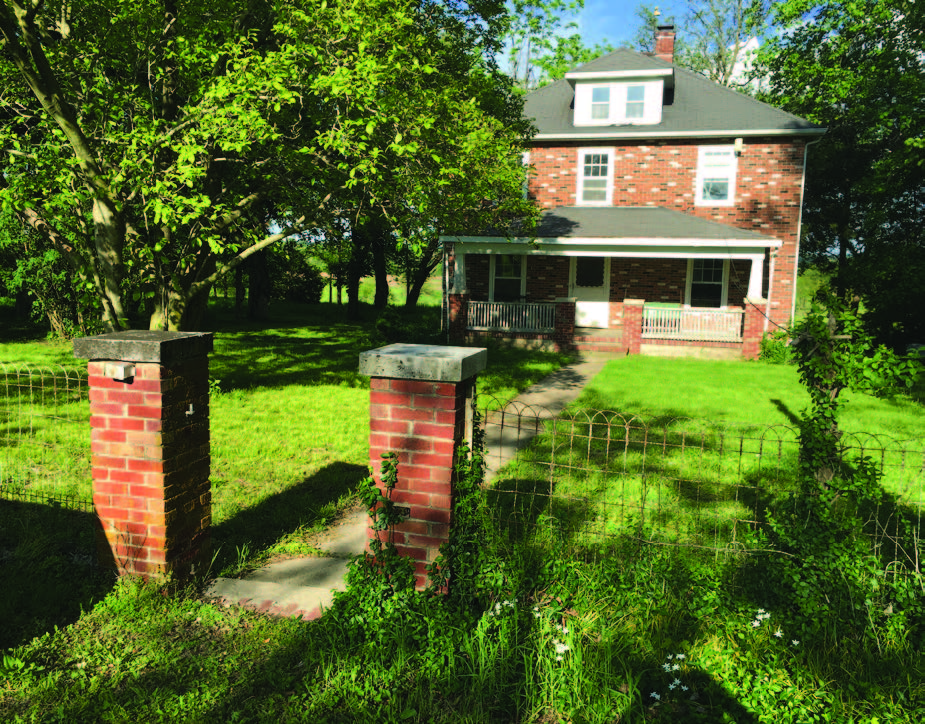ANTH Alumna Helps Create a New National Park
After bemoaning to a friend that she would be 55 years old if she decided to return to college and earn her undergraduate degree, Germany-native Charlotte King’s friend responded, “How old will you be if you don’t finish your studies?”
Finding inspiration in those words, in her daughters graduating from college, and in the support of fellow “non-traditional” students, King went on to complete her B.A. in Anthropology in 2003, and her M.A.A. in Applied Anthropology and Certificate in Historic Preservation in 2008, honors that would lead her on a path to successfully lobbying Congress just before the new year to recognize "the first town legally founded, platted and registered by an African American in the United States"—New Philadelphia, Illinois—as a national park.
King’s work with the New Philadelphia site began after talking to Department of Anthropology (ANTH) Professor Paul Shackel, who had already been involved with the site by that point in time, about studying the New Philadelphia site as part of her undergraduate honors thesis. Ultimately, King said her thesis “compared the racially diverse town of New Philadelphia, Illinois, founded by a formerly enslaved African American and considered by many local people as a Black town, with Boley, Oklahoma, founded by two white men, to test the viability of a self-governed African-American community.”
“When I informed Dr. Shackel of my decision to write my honors thesis on New Philadelphia, I remember that he told me that I was embarking on a remarkable journey and adventure that would take me as a researcher to our renowned National Archives, to the Library of Congress, to meetings with officials in Boley, Oklahoma and members of the New Philadelphia Association in Barry and Pittsfield, Illinois,” continued King. “Dr. Shackel’s prediction became a reality, and my journey was even more remarkable: It led to the halls of Congress and meetings with legislators and their staff members; testimony to the House Energy and Natural Resource Committee ;and meetings with curators of the Smithsonian Museum of American History to pursue national recognition for New Philadelphia, Frank McWorter and his family.”

Burdick House in New Philadelphia // Photo courtesy of NPS
Frank McWorter, a formerly enslaved man from Kentucky, bought freedom for himself and 15 family members and in 1836 began to sell side-by-side New Philadelphia lots to free born and formerly enslaved African and European Americans. By 1865, the town reached its economic peak with 160 residents.
By 1869, however, the town had begun to lose its population due to the rerouting of a planned railroad and the growth of other neighboring communities. By the 1940s, most homes and structures had disappeared from the landscape..
In 1996, nearby highway development threatened what was left of New Philadelphia—which, King says, survived “one of the most racially turbulent eras of our country’s history”—even more. The New Philadelphia Association (NPA), a non-profit organization dedicated to protecting the historical site and legacy of Frank McWorter, was created in response to that threat.
“Dr. Vibert White, chair of the African American Studies program at the University of Illinois, invited Dr. Shackel to join the New Philadelphia research project … [and] in 2002 and 2003, members of the community eagerly assembled to methodically walk over the site and mark the location of each of the more than 7,000 historic and 1,000 prehistoric artifacts recovered from the surface,” said King.
With support from two three-year grants from the National Science Foundation Research Experience for Undergraduates Program, Shackel, Dr, Terry Martin, Dr. Chris Fennell and Dr. Anna Agbie Davies, conducted field schools at the site from 2004-2011, unearthing and mapping more than 150,000 artifacts. King served as lab director from 2004-2006.
“She ensured the students had a great learning experience and that all artifacts were correctly cataloged and curated,” Shackel said. “Her work ethic was admired by all.”
King was asked to join the NPA after her 2008 graduation, at which point, through her master’s thesis, she nominated New Philadelphia for National Historic Landmark designation, one of the highest designations the federal government can bestow upon a historic property or archaeological site.
One year later, the Secretary of the Interior awarded New Philadelphia that very distinction.
A few more years later, King was nominated to the NPA’s Board of Directors, in which role she nominated the site for membership in the National Park Service Underground Railroad Network to Freedom program, and provided information to curators on the “Many Voices, One Nation” exhibit in the Smithsonian Museum of American History.
Most recently, however, King played a lead role in helping New Philadelphia earn an even higher designation than "National Historic Landmark" by lobbying Congress to establish New Philadelphia as a National Park.
“It took several years to find the right mix of Congress members and staffers and persistent lobbying before the New Philadelphia bill was attached to the 2022 omnibus bill, which passed both houses and was signed by President Biden. Not only do I admire Charlotte as a wonderful, kind, and generous person, I am in awe of her focus and determination to lobby Congress and help make New Philadelphia the 424 th national park,” said Shackel. “Adding New Philadelphia to the pantheon of nationally significant places on the American landscape will only help provide a deeper understanding of America’s diverse past and help to create a more inclusive narrative of our American story.”
King shares Shackel’s vision for the future of the newest national park.
“I hope the lasting legacy of the site recognizes the contributions of African Americans to our country’s history; educates the public about the remarkable story of New Philadelphia, the McWorter family and its extraordinary founder Frank McWorter; and inspires current and future generations about the values of New Philadelphia and the McWorter family: The quest for freedom, opportunity and love for family.”
This article was written by Sofia Appolonio, JOUR '26, and Rachael Grahame, '17.
Published on Thu, Feb 16, 2023 - 4:14PM



